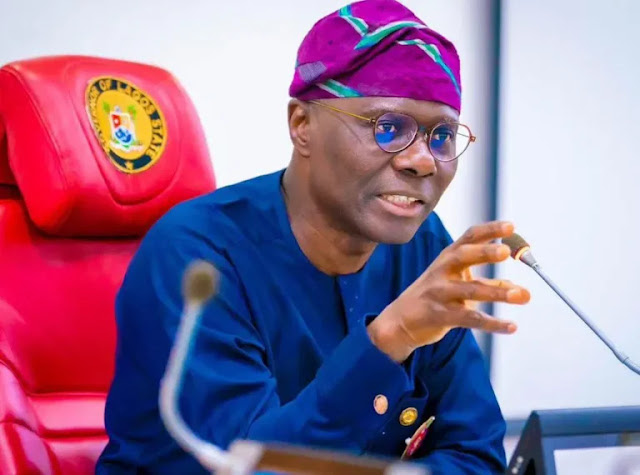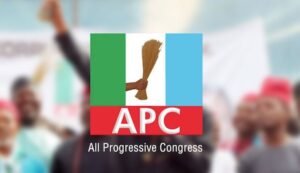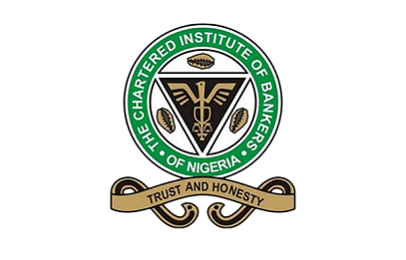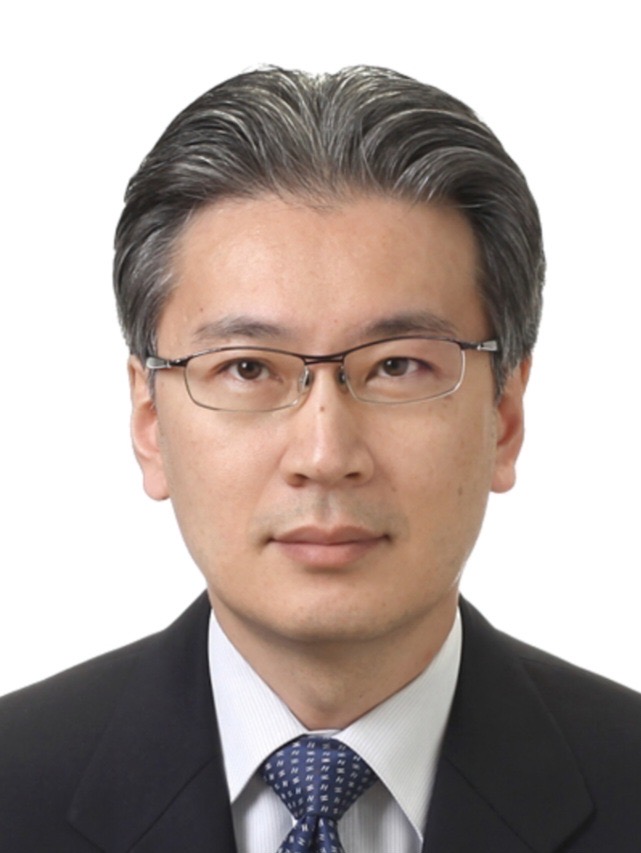Lagos State Governor, Babajide Olusola Sanwo-Olu, has reiterated his administration’s unwavering commitment to deepening its partnership with the Universal Basic Education Commission (UBEC) to ensure the delivery of quality education to every child in the state. Speaking through his Deputy, Dr. Kadri Obafemi Hamzat, during a courtesy visit by UBEC’s Executive Secretary and board members at the Roundhouse in Alausa, Ikeja, the governor emphasized that no Nigerian child should be denied access to learning opportunities in 2025. This pledge underscores Lagos State’s determination to prioritize education as a fundamental right and a cornerstone of national development.
Education as the Bedrock of National Progress
Governor Sanwo-Olu described education as the bedrock of Nigeria’s growth and development, stressing that it must remain a central priority for every state in the federation. He argued that providing quality education at the primary level is critical to securing a bright future for Nigerian children and fostering sustainable national progress. “In 2025, no child in Nigeria should be left out of school. Education should not be about region, culture, or tradition; it is a fundamental right. If we get primary education right, the future of our children will be secure,” he declared.
This statement reflects the governor’s vision of an inclusive education system that transcends regional, cultural, or socio-economic barriers. By ensuring that every child has access to quality learning opportunities, the Lagos State government aims to lay a strong foundation for the next generation, equipping them with the knowledge and skills needed to contribute meaningfully to society.
Support for UBEC’s Smart Model School Project
A key focus of the governor’s remarks was Lagos State’s commitment to supporting UBEC’s Smart Model School project in Iworo-Ajido, Badagry. The school, designed to accommodate nearly 1,000 pupils, is one of UBEC’s largest and most advanced educational facilities, equipped with modern teaching tools such as computers and interactive smart boards. Sanwo-Olu pledged to provide qualified teachers, enhance security measures, and upgrade infrastructure to ensure the success of this flagship initiative.
The Smart Model School represents a significant step toward modernizing basic education in Nigeria. By incorporating cutting-edge technology and innovative teaching methods, the project aims to create a conducive learning environment that prepares students for the demands of the 21st century. The governor’s assurance of support underscores Lagos State’s recognition of the project’s potential to serve as a model for educational excellence across the country.
Advocating for Inter-State Collaboration
Governor Sanwo-Olu called for stronger collaboration among states to enhance the quality of education nationwide. He urged UBEC to facilitate peer learning and real-time knowledge exchange, enabling other states to adopt Lagos’s successful education strategies. By sharing best practices and innovative approaches, states can work together to address common challenges and improve educational outcomes for all Nigerian children.
Lagos State has long been a pacesetter in education, implementing initiatives such as the Eko Excel program, which leverages technology to improve teaching and learning in public primary schools. The governor’s call for inter-state collaboration reflects his belief that Lagos’s achievements can serve as a blueprint for other states, fostering a more cohesive and effective national education system.
Education and Nigeria’s Sovereignty
In a poignant reference to Badagry’s historical significance as a former slave route, Governor Sanwo-Olu linked education to Nigeria’s sovereignty and self-determination. He argued that a solid educational foundation is essential to ensuring that the country’s progress remains independent of foreign influence. By investing in education, Nigeria can empower its citizens to drive economic growth, innovation, and governance, reducing reliance on external actors and safeguarding the nation’s autonomy.
This perspective highlights the broader implications of education beyond individual development. A well-educated populace is better equipped to address national challenges, contribute to economic diversification, and uphold Nigeria’s position in the global community. The governor’s emphasis on sovereignty underscores the strategic importance of education as a tool for nation-building.
Commending UBEC’s Revised Funding Framework
Governor Sanwo-Olu commended UBEC’s revised funding framework, which allows states to allocate funds according to their specific needs. He criticized earlier approaches as inflexible and ineffective, arguing that they failed to account for the diverse challenges faced by different states. The new model, he said, represents a progressive step toward delivering stronger outcomes for pupils and communities.
The revised framework enables states like Lagos to tailor educational interventions to their unique contexts, ensuring that resources are used effectively to address local priorities. For example, Lagos can invest in technology-driven education initiatives, infrastructure upgrades, and teacher training programs that align with its urban, cosmopolitan environment. By empowering states to make data-driven decisions, UBEC’s new approach fosters greater accountability and efficiency in the education sector.
Prioritizing Data-Driven Planning and Special Needs Education
The governor called on education stakeholders to prioritize data-driven planning to ensure that resources are allocated effectively and equitably. He emphasized the importance of using data to identify gaps in the education system, monitor progress, and evaluate the impact of interventions. This approach, he argued, would enable policymakers to make informed decisions that maximize the benefits of educational investments.
Sanwo-Olu also highlighted the need for greater attention to special needs education, urging stakeholders to ensure that children with disabilities have access to inclusive learning environments. He advocated for health interventions, such as vision and hearing assessments, to identify and address barriers to learning, ensuring that every child can benefit from educational opportunities. By prioritizing inclusivity, the Lagos State government aims to create an education system that leaves no child behind.
UBEC’s Recognition of Lagos’s Achievements
During the courtesy visit, UBEC’s Executive Secretary, Aisha Garba, explained that Lagos was selected as the host for the Commission’s Southern Zone senior management retreat in recognition of its outstanding achievements in education. She praised Lagos for its leadership in delivering quality education and improving access for pupils across the state.
Garba emphasized the importance of Lagos’s partnership in sustaining the Smart Model School in Iworo-Ajido, Badagry. She called for collaboration in recruiting qualified teachers, providing student transportation, and ensuring security at the school to maintain its operational success. The school’s modern facilities, including computers and interactive smart boards, position it as a model for technology-driven education in Nigeria.
The Executive Secretary expressed confidence that Lagos’s approach could serve as a national template, particularly in leveraging private sector investment to strengthen access and improve educational outcomes. She noted that Lagos’s success in mobilizing resources and implementing innovative programs could inspire other states to adopt similar strategies, creating a ripple effect across the country.
Lagos as a National Leader in Education
Lagos State’s leadership in education is evident in its numerous achievements, from the implementation of technology-driven initiatives to the construction of modern school facilities. The Eko Excel program, for instance, has transformed public primary education by equipping teachers with digital tools and providing real-time data to monitor student performance. The state has also invested heavily in infrastructure, building new schools and renovating existing ones to create conducive learning environments.
By hosting UBEC’s Southern Zone retreat, Lagos has an opportunity to showcase its successes and share lessons learned with other states. The state’s ability to attract private sector investment has been a key factor in its educational advancements, enabling it to fund ambitious projects like the Smart Model School. This public-private partnership model could serve as a blueprint for other states seeking to address resource constraints in their education systems.
The Broader Implications of Lagos’s Education Strategy
Lagos State’s commitment to quality education has far-reaching implications for Nigeria’s development. By prioritizing access, inclusivity, and innovation, the state is preparing its young population to compete in a globalized economy. The focus on technology-driven education, such as the use of interactive smart boards and digital learning platforms, aligns with global trends and ensures that students are equipped with 21st-century skills.
The emphasis on special needs education and health interventions reflects a commitment to equity, ensuring that all children, regardless of their circumstances, have the opportunity to succeed. By addressing barriers to learning, such as vision and hearing impairments, Lagos is creating a more inclusive education system that maximizes the potential of every child.
Furthermore, the state’s collaboration with UBEC and its call for inter-state cooperation demonstrate a forward-thinking approach to education reform. By fostering knowledge exchange and peer learning, Lagos is contributing to the development of a cohesive national education system that benefits all Nigerians.
Challenges and Opportunities Ahead
While Lagos State has made significant strides in education, challenges remain. The state’s large and rapidly growing population places immense pressure on its education system, requiring continuous investment in infrastructure, teacher training, and resources. Ensuring that rural areas, such as Badagry, receive the same level of attention as urban centers like Ikeja is critical to achieving equitable development.
The success of initiatives like the Smart Model School will depend on sustained collaboration between the state government, UBEC, and other stakeholders. Recruiting and retaining qualified teachers, maintaining modern facilities, and ensuring student safety are ongoing priorities that require careful planning and resource allocation.
At the same time, Lagos’s achievements present opportunities for innovation and leadership. By replicating successful models like Eko Excel and the Smart Model School, other states can learn from Lagos’s experience and adapt these strategies to their own contexts. The state’s ability to leverage private sector investment also offers a model for addressing resource constraints, particularly in the face of limited public funding.
Conclusion
Governor Babajide Olusola Sanwo-Olu’s reaffirmation of Lagos State’s commitment to quality education through collaboration with UBEC reflects a vision of inclusivity, innovation, and national progress. By prioritizing access to education as a fundamental right, supporting UBEC’s Smart Model School, and advocating for inter-state collaboration, Lagos is setting a high standard for educational excellence in Nigeria.
The state’s achievements, from technology-driven initiatives to inclusive education policies, position it as a leader in the education sector. By addressing challenges such as infrastructure deficits and special needs education, Lagos is creating a system that empowers all children to reach their full potential. As the state continues to work with UBEC and other stakeholders, its efforts have the potential to transform education not only in Lagos but across Nigeria, ensuring a brighter future for the nation’s youth.






